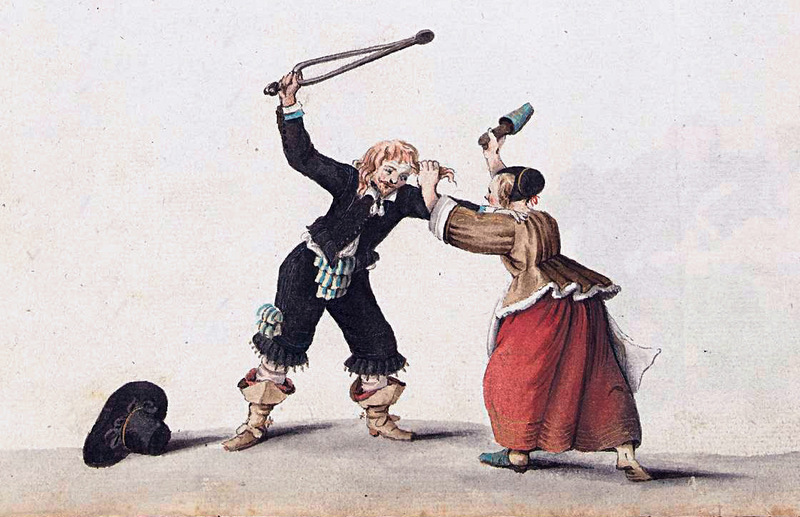Scripture: Luke 12:49,51
“I came to bring fire to the earth, and how I wish it were already kindled! – Do you think I have come to bring peace to the earth? No I tell you, but rather division!”
– Luke 12:49, 51
Well I don’t know about you, but it seems that from last week to today we have jumped from the frying pan into the fire. Last week – when we wrestled with Jesus’ teaching on how our lives our prioritized, particularly around the tough issue of money – seems like a cake walk compared to the bombshell that Jesus drops on us today!
After all one of the enduring images that we have of Jesus is that he is the Prince of Peace, that his ministry is marked by love, forgiveness, mercy etc. We have heard sermons and sang songs about welcoming Jesus into our hearts and following Jesus as Lord and following the example of compassion and love that he displays. And yet here is Jesus telling the crowds that he has not come to bring peace, but rather division! Luke’s account is at least a little softer than Matthew’s where Jesus is quoted as saying that he brings the sword rather than peace. Jesus then goes on to say that families will be divided “father against son, son against father, mother against daughter and daughter against mother, mother-in-law against daughter-in-law and daughter-in-law against mother-in-law.”

For many of us, family is one of the most important priorities that we have in our lives – so important that it borders on the sacred. We want to ensure our families are safe and happy; we want to make sure our children grow up well-adjusted and thrive and flourish in the lives ahead of them; we want to live in families where there is respect, love and cooperation; we want to honour our parents and grandparents and to receive the same from our children and grandchildren. And so when Jesus says that he comes to bring division, that because of him one household will be divided down the middle – it is at best unsettling and more likely than not something that upsets us and something that we just don’t want to grapple with so we skip over it in our understanding of who Jesus is.
But to do so robs us of a full understanding of who Jesus is, and the impact that he and his kingdom have on us as followers and disciples. We cannot ignore Jesus’ words here, we cannot try to rationalize them so that they become devoid of any power or effect. Jesus means what he says: his presence is unsettling, it is divisive – not because he intends division but because it is the response of the world to the upheaval of priorities and emphases in the Kingdom. Jesus is divisive because the Kingdom of God is radically different from a world that is marked by sin and death; Jesus is divisive because he calls those who want to follow him into a radically different life. For many Christians in the West, what it means to follow Jesus boils down to self-improvement: improvement of the person that you already are. It means being more kind and compassionate, it means caring for your neighbour, it means trying to be more forgiving or repentant – it ultimately means being a nicer kind of person.
C.S. Lewis, in Mere Christianity writes this about Niceness:
“Niceness – wholesome, integrated personality – is an excellent thing. We must try by every medical, educational, economic and political means in our power to produce a world where as many people as possible grow up ‘nice’; just as we must try to produce a world where all have plenty to eat. But we must not suppose that even if we succeeded in making everyone nice we should have saved their souls. A world of nice people content in their own niceness, looking no further, turned away from God, would be just as desperately in need of salvation as a miserable world – and might even be harder to save. For mere improvement is not redemption, though redemption always improves people even here and now and will, in the end, improve them to a degree we cannot yet imagine. God became man to turn creatures into sons [and daughters]: not simply to produce better [people] of the old kind but to produce a new kind of [humanity]. It is not like teaching a horse to jump better and better but like turning a horse into a winged creature.”

The Kingdom of God is disruptive, it should completely upend our life. It should completely upend and refocus our priorities and the way we live. Last week we spoke about how the Kingdom should upend and change how we prioritize money – how we spend our money, how we save our money and how we give our money. And the Kingdom of God doesn’t just stop there – it calls us to radically rethink everything thing in our lives – not necessarily to banish those things from our life but to understand them and interpret them in light of the Gospel, in light of the life, death and resurrection of Jesus.
As Lewis emphasizes we are called into a new humanity, into a new way of life that is not just an incremental change in our old way of life, but like the horse who is given wings, a radically different way of living in the world. For the rich young ruler, it meant selling all his possessions and giving the proceeds to the poor; for the disciples it meant giving up all they knew – the fishing nets, their families, their homes – to follow Jesus; for Saul it meant giving up the hatred and persecution that marked his life and taking on a new name to become Paul the apostle to the Gentiles. The Gospel is not a self-help book, it is not a guide to become the best person you can be – The Gospel, the good news of Jesus, is that the old you, the you who is mired in sin and despair – is put to death in the waters of baptism, and that the new you is brought to life out of the water as we share in the resurrection of Jesus.
This is why Jesus is divisive, he is bringing out about the death knell of the old world, the death knell of the old order of Sin which infects the world and inviting those who hear him to experience the new and reordered life of the kingdom. We need only to look at Jesus himself to understand the fact that his coming brought division rather than peace – because the very Gospel he proclaimed, the very Kingdom he inaugurated – resulted in his death on the Cross, resulted in the powers of the world seeking to destroy him, seeking to undo and prevent the change he was promising. Not only did it not undo or prevent the coming of God’s kingdom – the Crucifixion and Resurrection of Jesus opened for each of us the opportunity it enter into the life that Jesus speaks about, opened for each of us the opportunity to see the world as God sees it, to experience the very life of God.
To embrace the gift that Jesus has given us, the promise to be children of God we must accept the fact that Jesus doesn’t call us to self-improvement, that he doesn’t call us to make small incremental changes to the way we act and live, Jesus doesn’t call us to undertake small deeds here or there that will win us points in heaven – no he asks for our whole life; he asks that we submit ourselves wholly to him and allow how we live our lives to shaped by him – our priorities, our words, our actions. That is what we do in the sacrament of baptism, we or our sponsors promise for our whole life to be placed into God’s hands for our whole lives to be shaped by the promise that in Jesus we will experience abundant life in God, that even though our lives will be turned upside down that we will experience the very life of God himself.
Theologian Scott Hoezee recounts that “years ago a man named Millard Fuller was near the apex an American success story. He was a high-octane corporate executive, working eight-days a week and pulling down close to a million bucks a year. But then one day he heard God calling to him, telling him his life was overfull and his priorities out of whack. So in prayer with his wife one day, Fuller re-committed his life to Christ.
He quit his job, moved to a more modest house, and wondered what to do next. What he ended up doing next was building affordable houses for low income families who could purchase these homes interest-free. Today we are most of us well aware of the great good that Habitat for Humanity has done, and continues to do.” This is perhaps an extreme example, but it illustrates that following Jesus often means radical changes to our lives – even if we have been Christian or churchgoers our whole lives.

Of course we will stumble, our old selves will creep back into the picture – as Martin Luther once quipped the Old Adam who is meant to be drowned in baptism is a mighty good swimmer! Giving our whole lives to God, giving over our actions, our words and our priorities is a daily practice – it is a daily practice whereby in prayer, in community, in service, in sharing the Good News of Jesus with others, in worship we give ourselves over to God, we allow our lives to radically upended by the grace and mercy of God. Sometimes it will feel awkward, sometimes it will feel downright painful, sometimes it will be hard to give up on the things that we really want, the things that might not seem too bad but are ultimately holding us back that day from giving our lives fully over to Jesus – but the promise is that all the pain, all the awkwardness, all the difficulty we face will be miniscule in the face of what God has in store for us each and every day as we experience a taste of the new life of Christ in our lives.
And so today offer yourselves once again to Jesus, submit your whole life to God as it was in baptism, embrace the possibility that perhaps your whole life will be turned topsy-turvy and be ready to seize it – because after all God can do infinitely more than we can ask or imagine.
Let us Pray.
